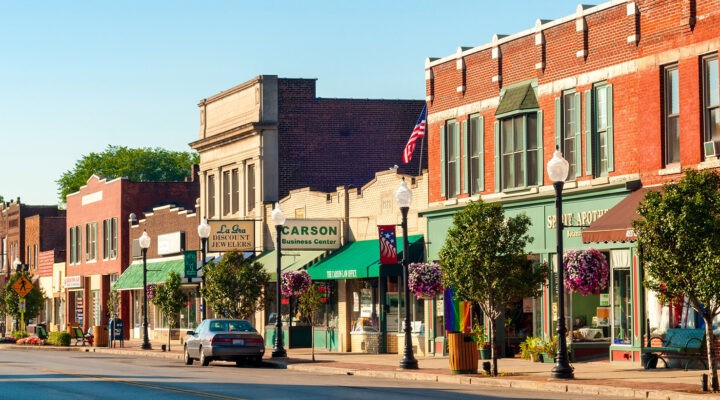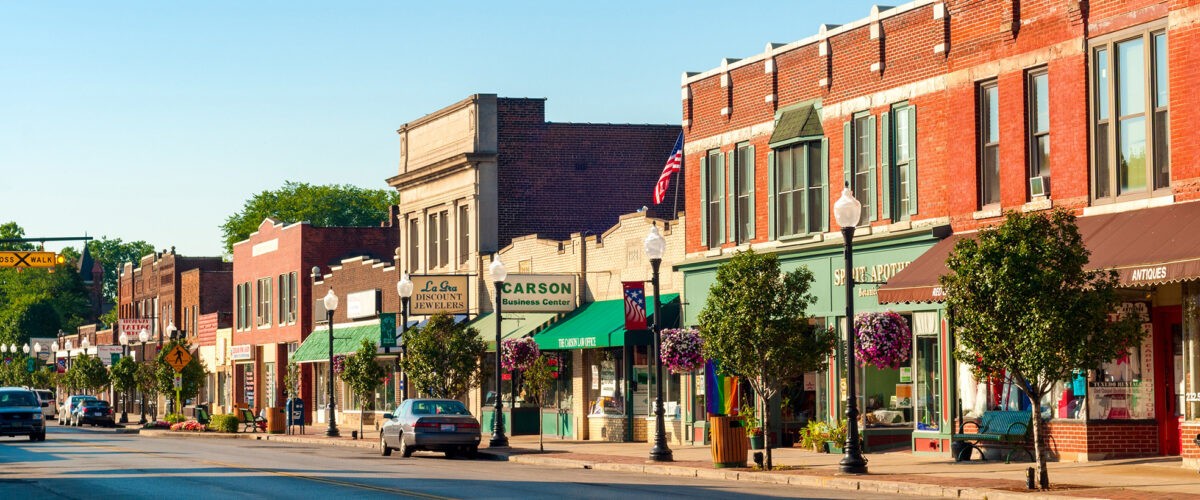When we make a purchase, we’ve been conditioned to think about one thing: What’s the best deal for me? This is a selfish approach to purchasing habits. But it’s not necessarily our fault that we think that way.
We’ve been conditioned to think that way. Advertisements constantly announce to us that X product is the best deal for your money, or that X company has the lowest prices, or that X company is convenient. We’re taught to think that we’re the only people we need to consider when making spending decisions.
But this is problematic. Where we spend our money affects many people. It affects the businesses we buy from, their employees and their employees’ families. However, it also affects the businesses we don’t buy from, their employees and their employees’ families (and many other people besides this as well).

Wesley Harris
Our spent money creates a ripple effect. So, if the only person we’re thinking about is ourselves (and maybe our family) when we buy, then we’re not necessarily considering the numerous others who are impacted by our decisions.
We’ve bought into a big lie, and that is this: We’re just consumers.
But that’s not true. We’re a community. And we’re a community whether we want to be a part of a community or not. There’s no escaping it. As people who are a part of a community, we need to spend like it. That means considering the many other people in a community whenever we make purchasing decisions.
This means spending money at businesses with ethical business practices as much as possible and avoiding business with unethical practices. This also generally means spending money at local small businesses as much as possible.
For instance, consider that Amazon has killed off numerous small businesses. These small businesses were making money selling on Amazon. But then Amazon, noticing that certain products were selling well, started copying those products. Amazon bumped their products to the top of the search results, which decimated the sales of the small businesses. Furthermore, Amazon hasn’t taken care of its employees. They did everything in their power to stop an Alabama warehouse from unionizing in 2021, and there have been various reports of overburdening workers.
Ordering from Amazon might be convenient, but that money we spend helps support an enormous monopoly that cares very little for its employees and for its effect on the rest of the economy. Instead, buy from a small business near you. Or buy directly from a local artisan. Or, at the very least (especially if the product is only available from bigger online retailers), order directly from the company.
“It may truly be more convenient to order through Amazon. But we’re not just consumers. We’re a community.”
I know it’s not always possible to know for certain how a business treats its employees and what their effects on the community and environment are. But we can do our best to find this out through research. This is also a way that local small businesses have an advantage. If we frequent them, we can get to know the employees and owner(s). We can see who we’re supporting. That often creates enough of a difference to make us shop local instead of relying on impersonal retail giants like Amazon or big-box stores. It may truly be more convenient to order through Amazon. But we’re not just consumers. We’re a community.
We also do more to support people’s dreams when we shop through small businesses and artisans. Small businesses are normally the result of people’s dreams. They want to give back to the community, they want to have a restaurant, they want to make and sell X product, they want to have an ethical business model. We should want to help people achieve their dreams of creating a business and selling something they love as much as possible. This is what a thriving economy should look like.
Local small businesses also contribute to a place’s uniqueness, unlike uniform chains and big-box stores. Local small businesses can make a place worth living in. They can make a city or town interesting and fun and personal. While there may be a place for a few chains and big-box stores in a city or town, they don’t achieve the same effect as local small businesses. They don’t make a place feel like home.
I’m not saying never shop at bigger businesses. When we do, though, we should try to shop at the ones with the best practices. For example, if we had to choose between Costco and Walmart, consider that Costco, in terms of ethical practices, is the better option. They pay their workers well and have a low employee turnover rate.
“With every purchase, we should have the community in mind — not just ourselves.”
There’s a place and a need for bigger businesses in society. However, our current economy has heavily favored the big players over the small players. We, as a community, need to do our part to balance out that power and thereby create a healthier economy that works for more people.
Now, I know some may point out that those with a small income don’t have many options, and I understand that. I’m simply advocating that we do the best we can. We’re not always going to be able to spend money at the absolute ideal business, and that’s OK. But, as much as possible, Americans need to shift their paradigm when it comes to shopping. With every purchase, we should have the community in mind — not just ourselves.
Changing our shopping paradigm will take time and effort. There will be trial and error as we try different businesses and artisans and find out which we should support. But we can’t continue to buy into the lie that we’re just consumers. Humanity is, by nature, an interconnected web. As such, we need to take up the ideal of loving our neighbors. This means considering the community when we spend.
W.R. Harris is a Christian writer who focuses on advocating for a justice-loving and compassionate church. He is currently working on a master of divinity degree at Denver Seminary. Follow him at his website.
Related articles:
GDP never was intended to show economic health, so why do Americans obsess over it? | Analysis by Todd Thomason
Growing movement seeks ‘freedom from stuff’
Private property or the public good? Thoughts on wealth, taxes and justice | Opinion by Chris Conley


